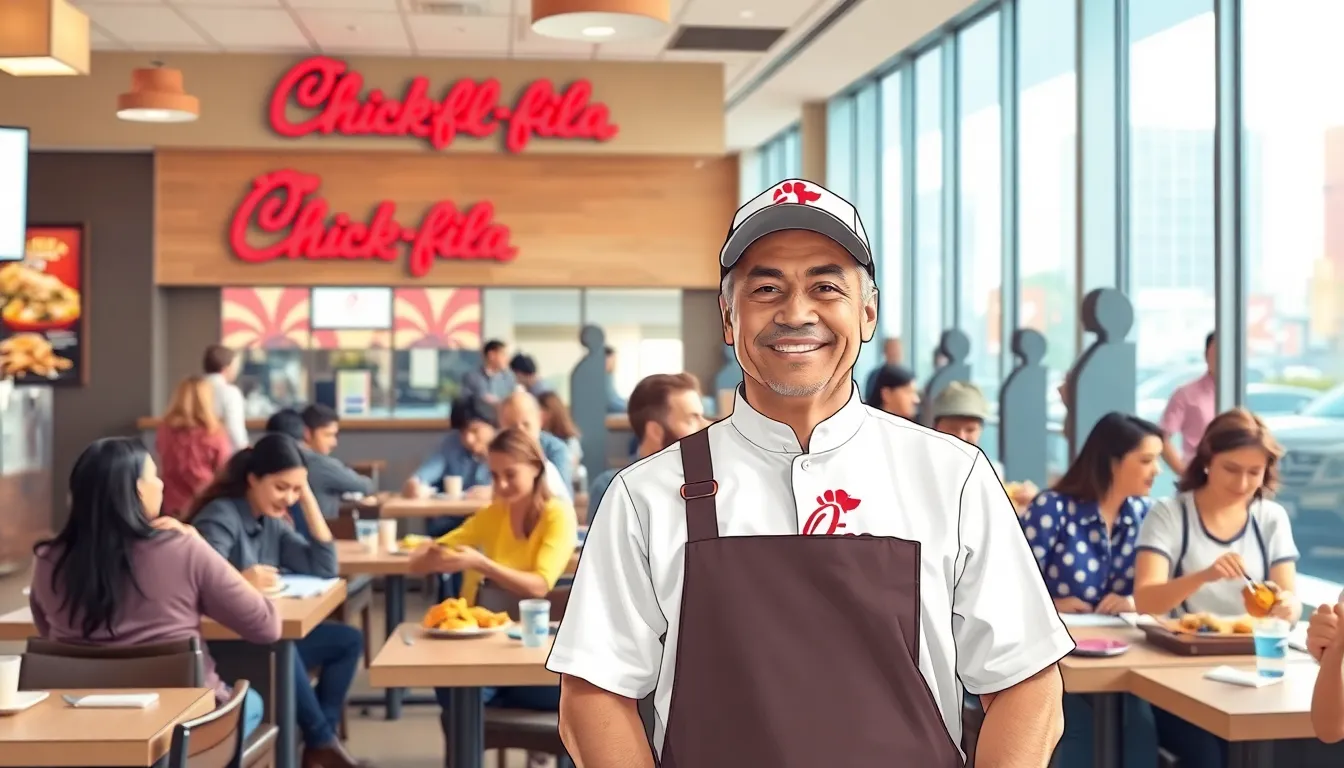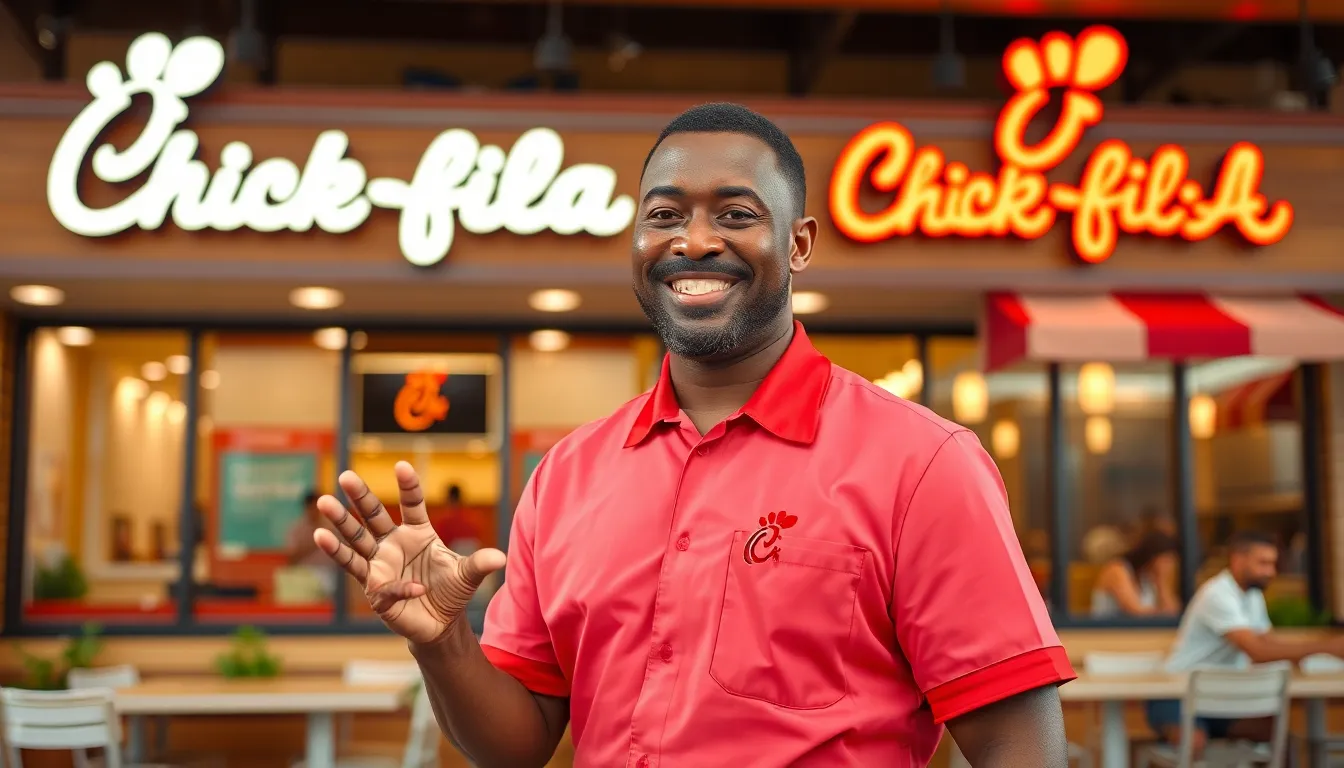Table of Contents
ToggleWhen it comes to fast food, few brands spark as much devotion as Chick-fil-A. But behind those crispy chicken sandwiches and waffle fries lies a bustling operation, and it takes more than just a love for poultry to keep the drive-thru lines moving. Ever wondered what it takes to run one of these beloved establishments? Spoiler alert: it involves more than just a secret sauce recipe.
Overview of Chick Fil A Operator Salary
Chick-fil-A operators earn a salary that reflects their responsibilities and business performance. The average annual salary for a Chick-fil-A operator ranges from $100,000 to $150,000. This figure varies based on factors like location, restaurant size, and individual restaurant performance.
Operators also benefit from the potential to earn additional income through profit-sharing models, which align earnings with the restaurant’s success. Profit-sharing can lead to considerable bonuses, particularly for operators who maximize sales and maintain efficient operations.
Franchise owners, unlike traditional franchise systems, do not pay for the franchise itself. Operators pay a relatively low initial fee, usually around $10,000, which allows them to focus more on profitability rather than initial expenses.
Chick-fil-A offers training programs that enhance skills, positively impacting operator income potential. Training periods often last six months, equipping operators with leadership strategies and operational best practices.
Job performance directly influences salary, with highly successful operators regularly exceeding average earnings. The dedication to providing excellent customer service and maintaining high operational standards plays a crucial role in enhancing both income and restaurant reputation.
Networking opportunities arise from participation in company events, which can foster valuable connections. These connections often lead to improved business strategies and increased visibility within the organization.
Overall, the salary of a Chick-fil-A operator comprises guaranteed earnings along with bonuses tied to restaurant performance, fostering a competitive but rewarding environment.
Factors Influencing Salary

Several elements play a crucial role in determining the salary of Chick-fil-A operators. Understanding these factors can clarify why compensation varies.
Location
Operating a Chick-fil-A restaurant in a metropolitan area generally yields higher earnings than in rural areas. Cities often feature a higher volume of customers, allowing for increased revenue. Location also affects operational costs, such as rent and utilities. Regions with a lower cost of living may offer different average salaries compared to urban settings.
Experience
Experience directly impacts operator salary. New operators typically start at the lower end of the scale. Veteran operators often command higher salaries, thanks to their established track records and knowledge of best practices. Companies prefer candidates with relevant experience, as this background translates into better decision-making and management strategies.
Store Performance
Store performance significantly influences overall earnings. Operators running high-performing locations often exceed the average salary range. Metrics such as sales figures and customer satisfaction scores directly correlate with income potential. Successful business practices and effective team management contribute to enhanced performance, leading to greater financial rewards through profit-sharing models.
Salary Range and Benefits
Chick-fil-A operators enjoy a competitive salary range and various benefits. Operating these restaurants presents financial opportunities, especially when performance excels.
Average Salary Insights
Average salaries for Chick-fil-A operators fluctuate between $100,000 and $150,000 per year. Operators located in metropolitan areas often earn on the higher end of this spectrum due to increased customer traffic. Additionally, experience significantly influences compensation, with veteran operators typically receiving more. Enhanced performance can result in salaries exceeding the average, particularly when profit-sharing bonuses come into play. As operators refine their business practices, they often witness a direct correlation to their financial success.
Additional Benefits
Operators receive numerous benefits beyond their salaries. Profit-sharing models reward successful business practices, adding to overall income. Comprehensive training programs develop skills, enhancing both performance and earning potential. Health insurance and retirement benefits frequently accompany operator contracts, further contributing to job attractiveness. Networking opportunities at company events facilitate business strategy improvements, connecting operators with industry experts. These elements create a holistic support system that drives financial and professional growth.
Comparison with Other Fast Food Operators
Chick-fil-A operators earn competitive salaries compared to other fast food operators. Annual earnings range from $100,000 to $150,000, depending on various factors. In contrast, McDonald’s franchise owners see average earnings of $75,000, with some variance based on location and store performance.
Wendy’s franchise owners typically report salaries between $40,000 and $70,000. This difference highlights Chick-fil-A’s superior earning potential for its operators. Profit-sharing opportunities significantly enhance Chick-fil-A operators’ incomes. Fast food chains like Burger King do not commonly offer similar financial incentives.
Performance directly influences salaries in all these chains. Higher-performing Chick-fil-A locations often yield greater bonuses through profit-sharing mechanisms. With franchise fees around $10,000, Chick-fil-A emphasizes low initial investment, unlike franchises such as Taco Bell, where the initial investment can reach $1 million.
Training support distinguishes Chick-fil-A from competitors. The company’s extensive training programs enhance skills, which positively impact earnings. Many fast food brands offer training, but few focus on in-depth, ongoing support like Chick-fil-A.
Benefits such as health insurance and retirement plans further improve compensation packages. In comparison, some competitors may provide limited health benefits, making Chick-fil-A a more attractive choice for potential operators. Overall, Chick-fil-A operators enjoy a blend of guaranteed salaries and performance incentives, setting them apart in the fast food industry.
Chick-fil-A operators have the potential to earn impressive salaries that reflect their hard work and dedication. With earnings ranging from $100,000 to $150,000 annually and opportunities for profit-sharing, they can significantly boost their income through effective management and strategic decisions.
The low initial franchise fee and comprehensive training programs make this opportunity accessible and attractive. As operators navigate the complexities of running a restaurant, their commitment to excellence can lead to substantial financial rewards and career growth. Overall, the Chick-fil-A model offers a unique blend of competitive compensation and professional development that stands out in the fast-food industry.







